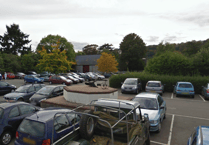Figures released today have shown that house prices in Wales have risen by 14.3 percent in the last year.
The Halifax House Price Index, which monitors the amounts paid for properties across the UK, has reported that the national average house price rose to a record £294,895 in June.
In Wales, house prices sit at an average of £219,981 - lower than the overall UK number, but the highest that Wales has ever seen.
This is 14.3 percent higher than June 2021, when the Wales average was approximately £192,422, and is more than £3,000 higher than last month’s figures, which saw the average sit at £216,120.
Halifax explained: “The average house price in Wales is now £219,281, up over 14% annually. This is still some way below the national average of £294,845, so house hunters are likely to find their money goes further amongst the many beautiful towns and villages Wales has to offer.”
House prices across the UK have risen steadily for twelve consecutive months, and are now 13 percent higher than they were in June 2021.
However, Halifax predicts that price increases should slow within the coming months.
Russell Galley, Managing Director at Halifax, said: “The UK housing market defied any expectations of a slowdown, with average property prices up 1.8 percent in June, the biggest monthly rise since early 2007.
“This means house prices have now risen every month over the last year, and are up by 6.8 percent or £18,849 in cash terms so far in 2022, pushing the typical UK house price to another record high of £294,845.
“The supply-demand imbalance continues to be the reason house prices are rising so sharply.
“Demand is still strong – though activity levels have slowed to be in line with pre-Covid averages – while the stock of available properties for sale remains extremely low.
“Property prices so far appear to have been largely insulated from the cost of living squeeze.
“This is partly because, right now, the rise in the cost of living is being felt most by people on lower incomes, who are typically less active in buying and selling houses. In contrast, higher earners are likely to be able to use extra funds saved during the pandemic, with latest industry data showing that mortgage lending has increased by the highest amount since last September.
“Of course, the housing market will not remain immune from the challenging economic environment.
“But for now it continues to demonstrate – as it has done over the last couple of years – the unique combination of factors impacting prices.
“One of these remains the huge shift in demand towards bigger properties, with average prices for detached houses rising by almost twice the rate of flats over the past year (+13.9% vs +7.6%).
“In time though, increased pressure on household budgets from inflation and higher interest rates should weigh more heavily on the housing market, given the impact this has on affordability.
“Our latest research found that the strong rise in property prices over the last two years, coupled with much slower wage growth, has already pushed the house price to income ratio up to a record level.
“So while it may come later than previously anticipated, a slowing of house price growth should still be expected in the months ahead.”





Comments
This article has no comments yet. Be the first to leave a comment.